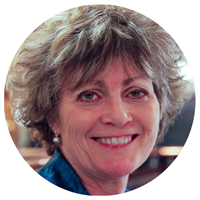 |
KIRSTEN DROTNER, CHAIR HUMANITIES COMMITTEE SCIENCE EUROPE
Kirsten Drotner is Professor of Media Studies at the Institute for the Study of Culture at the University of Southern Denmark. Her research examines media audiences’ meaning-making in historical and contemporary perspective; media and digital literacies; digital co-creation and learning; qualitative methodologies inc. media ethnography; ICT studies and e-learning; digital museum studies; and child and youth culture studies. She is author or editor of six books in English, 24 books in Danish and numerous academic articles and chapters in edited volumes. She is an elected fellow of the Royal Danish Academy of Sciences and Letters. |
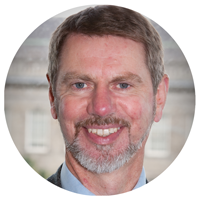 |
POUL HOLM, ECHIC
Poul Holm is Trinity Long Room Hub Professor of Humanities at Trinity College Dublin, Ireland, and Director of the Irish Digital Arts and Humanities Structured PhD Programme. He is President of the European Consortium of Humanities Institutes and Centres. In the past he has been Academic Director of the Trinity Long Room Hub, Rector (President) of the University of Roskilde, and Professor of Maritime History at the University of Southern Denmark. He has served on national and European committees such as the Danish Research Council for the Humanities (chairman 2001-5), the European Society for Environmental History (President 2005-7), the EU DG Research METRIS group (chairman 2008-9), and the ESF RESCUE initiative on Climate Change Research (lead author on Collaboration between natural, human and social sciences). |
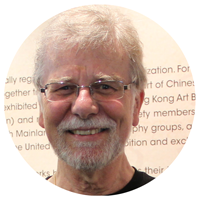 |
SVEND ERIK LARSEN, AE
Svend Erik Larsen, dr.phil., is Professor Emeritus of Comparative Literature, Aarhus University. Research Director of the Humanities Research Center: Man & Nature (1992-1997). Honorary Professor, University College London. Board member of the Danish National Research Foundation. Member of the Board of Trustees of the Academia Europaea, Class Chair of Arts and Letters and Section Chair of Literary and Theatrical Studies in the Academia Europaea. Co-editor of Orbis Litterarum. External reviewer for several European funding bodies, ERC included, and external evaluator in a number of European national assessments of research organization and grant distribution. Publications on literary and cultural history, history of ideas, semiotics, memory studies, world literature. Among the authored books: Sémiologie littéraire (1984), Signs in Use (2002, with J.D. Johansen), I byen med Balzac (2002), Tekster uden grænser.Litteratur og globalisering (2007), litteraturDK (2009). Among the edited volumes: Communication et sujet (1980), A l’occasion d’un centenaire: Actualité de Brøndal (1987), Gärten und Parks (1997), La rue – espace ouvert (1997), Nature: Literature and its otherness/La literature et son autre (1997), Balzac (2000), Romanticism and Memory (2014). 300+ articles in national and international journals and volumes. Current book project: Forgiveness as a cultural and literary challenge. |
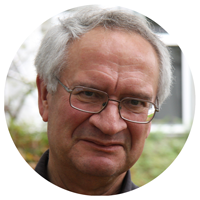 |
WOLFGANG MACKIEWICZ, FUB
Wolfgang Mackiewicz is Honorary Professor of English Philology at Freie Universität Berlin. Until September 2011, he was director of the Language Centre of Freie Universität. From 1997 to 2013 he was president of the Conseil européen pour les langues / European Language Council (CEL/ELC). Wolfgang was chair of the SIGMA Scientific Committee on Languages (1994-5), and went on to co-ordinate a total of nine EU network and development projects. He was chair of the Advisory Board of the FP6 DYLAN project, and is consultant to the FP7 MIME project. He wasrapporteur of the European Commission’s High Level Group on Multilingualism (2006-7). He chaired the expert groups on the Humanities in FP7 (2006-7), and on Assessment of University-Based Research (2008-9), launched by the European Commission’s Directorate-General for Research, and he was a member and later the chair of the Expert Advisory Group on Socio-economic Sciences and Humanities in FP7. He is currently a member of the Expert Advisory Groups on ‘H2020 Societal Challenge 6’ and ‘Science with and for Society’ (SWAFS). Wolfgang holds three honorary doctorates (Universitatea Babeș-Bolyai; Université Charles de Gaulle – Lille 3; Vrije Universiteit Brussel). He was awarded the Order of Merit by the President of the Federal Republic of Germany. |
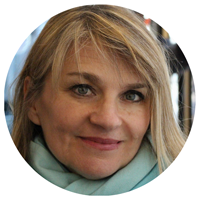 |
Dr. Rossella Magli is Science Officer at European Cooperation in Science and Technology (COST), in charge of the portfolio of COST Actions in Social Sciences and Humanities. Prior to joining COST, she has been Project and Policy Officer at the European Commission in the Experimental School Environment Programme and in the Networked Media Systems Unit at DG CONNECT. Between 1987 and 2009, Rossella has worked as a researcher at several research institutes in Italy and France, and universities in Belgium (Université de Liège), Spain (Universidad de Barcelona) and Denmark (Odense University), as well as in the US, at the University of Pennsylvania. Between 2002 and 2009 she was co-founder and CEO of CampoRosso, a small research company based in Belgium. Her research has focused on the social appropriation of information and communication technologies in educational settings, on the qualitative analysis of the social impact of technologies through ethnographic methods, on the innovation of educational systems, on the co-design of new technology interfaces and educational scenarios in schools, and on digital literacy. She was also advisor to the EU Commission – Directorate General Education and Culture, in the negotiation process of educational policies, in the framework of the “Lisbon process”. Rossella has a degree in Law from the University of Bologna, a Diploma in International Relations from Johns Hopkins University and a “DEA” (Diplôme d’Etudes Approfondis) in Communication, Technologies and Power from Sorbonne University in Paris, with a specialization in Anthropology of Communication. |
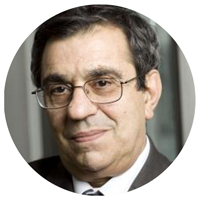 |
ALAIN PEYRAUBE, CNRS
Alain Peyraube received his Ph.D. from Paris 8 University in 1976 and his Doctorat d’Etat from Paris 7 University in 1984. |
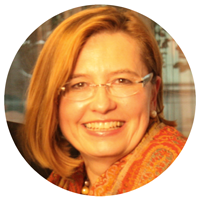 |
ANGELA SCHINDLER-DANIELS, NET4SOCIETY
Ms Angela Schindler-Daniels (MA) is the German National Contact Point for Socio-Economic Sciences and Humanities (SSH) and since 2008 she has been the coordinator of NET4SOCIETY, the network of National Contact Points for SSH/Societal Change 6. Ms Schindler-Daniels has longstanding experience working not only as the SSH NCP but also as the programme coordinator and as national expert for the FP 7 SSH programme committee. She was a member of the HERA ERA-Net and was active in the Quality Management Board of the EU Health Network. She commands a vast knowledge of all facets of NCP work and the challenges involved. Angela’s work has always been in an international context. Before she joined the Project Management Agency within the German Aerospace Centre, which hosts numerous German NCPs, she worked in the International Bureau of the Federal Ministry of Education and Research as the USA desk officer, and was senior economic and global affairs specialist with the U.S. Embassy in Bonn for Economic and Global Affairs. She holds a master’s degree in Political Science, American Literature and Business. |
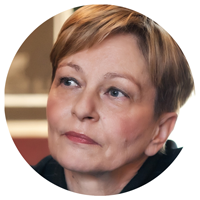 |
MILENA ŽIC FUCHS, ALLEA & EASSH
Milena Žic Fuchs studied English language and literature, and Ethnology at the University of Zagreb where she received her PhD in Linguistics (Cognitive Linguistics) in 1989. Since 1978 she has been teaching Linguistics in the English Department of the University of Zagreb, and at present holds a position of Full Professor. She teaches Semantics and Cognitive Linguistics as well as seminars in semantics, discourse analysis and sociolinguistics. To date she has published over 30 articles in international and Croatian journals, covering research topics in semantics, discourse analysis, cognitive linguistics and the influence of communication technologies on language, and she has authored three books: Knowledge of Language and Knowledge of the World (1991), a dictionary of acronyms (20,000 items) and Cognitive Linguistics and Language Structures: the English Present Perfect (2009), for which she received the National Award for Science in 2011. In 2010 she was elected Full Member of the Croatian Academy of Sciences and Arts. In 2013 she was elected member of Academia Europaea, and since 2014 has been Chair of the ERC Advanced Grant Panel SH4 ‘The Human Mind and Its Complexity’. She is a member of numerous advisory bodies, including at the European level, and acts as an expert for the European Commission. In 2005 Milena Žic Fuchs became a member of the Standing Committee for the Humanities of the European Science Foundation, which she chaired from 2009 until 2012. Since November 2012 she has been Chair of the SCH successor, the Scientific Review Group for the Humanities. |
